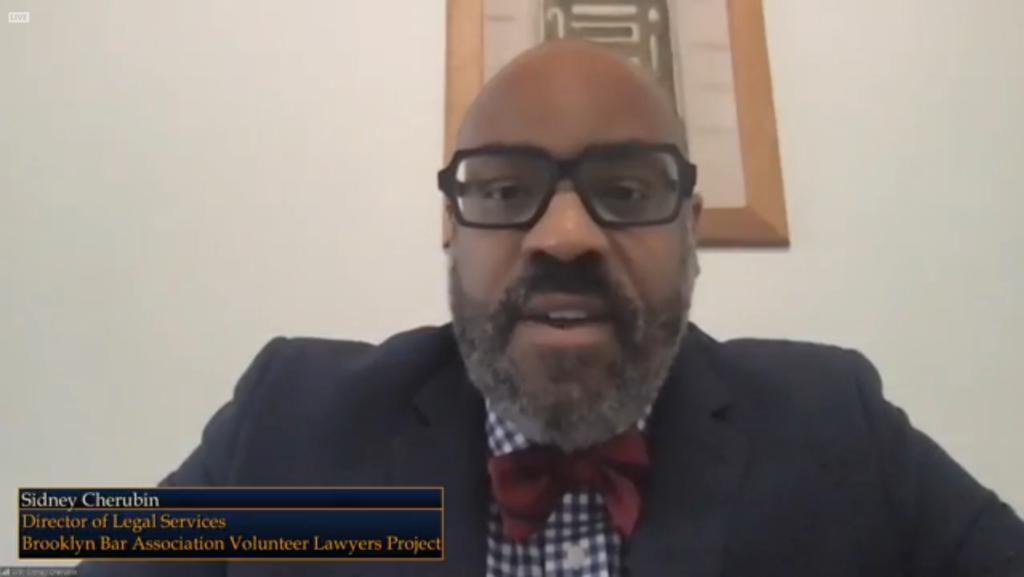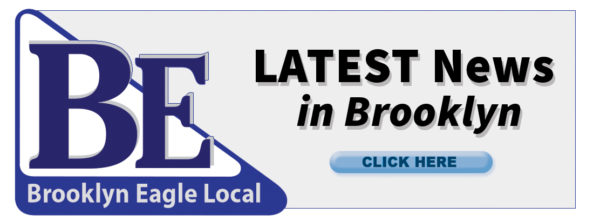VLP attorney advocates for unrepresented people in consumer debt cases
Cherubin: courts need to improve communications

 A self-represented litigant from Brooklyn had a consumer debt case in the Civil Court that was adjourned due to the COVID-19 crisis. On Aug. 8, the crisis was not over but the new court date had come around. The litigant was told that her case was unlikely to take place but was never notified otherwise, so she showed up that day only to be turned away.
A self-represented litigant from Brooklyn had a consumer debt case in the Civil Court that was adjourned due to the COVID-19 crisis. On Aug. 8, the crisis was not over but the new court date had come around. The litigant was told that her case was unlikely to take place but was never notified otherwise, so she showed up that day only to be turned away.
Sidney Cherubin, the director of legal services at the Brooklyn Bar Association Volunteer Lawyers Project (VLP) recently testified at a hearing in front of the NY State Senate on Friday, Aug. 21 that this scenario has played out too often in Brooklyn courts.
“‘I was told to go, so I went,’ [the litigant] said. She is elderly and was recovering from a minor surgery,” Cherubin explained. “She told me that she had to take a taxi to the courthouse, and when she got there, she was turned away at the door. She is still very nervous about the outcome of her case. This scenario could have easily been avoided with proper communication.”

Brooklyn Boro
View MoreNew York City’s most populous borough, Brooklyn, is home to nearly 2.6 million residents. If Brooklyn were an independent city it would be the fourth largest city in the United States. While Brooklyn has become the epitome of ‘cool and hip’ in recent years, for those that were born here, raised families here and improved communities over the years, Brooklyn has never been ‘uncool’.